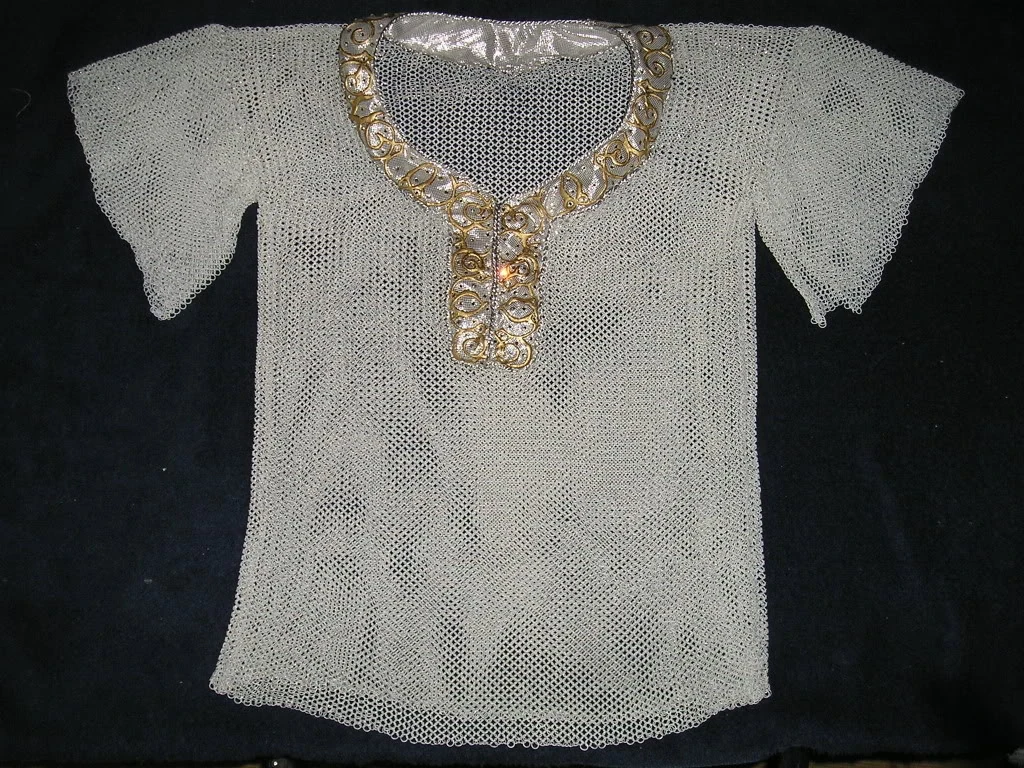
(Continuing from last week.)
The need to secure resources is not meaningless fluff. (Dungeon Master's Guide p. 164)
For game purposes, all magical armor should be considered as being virtually weightless -- equal to normal clothing, let us assume. This gives characters so clad a base movement speed equal to an unarmored man. Magic shields, however, weigh the same as a normal shield of the same size.
Armor of +3 bonus is of special metorite iron steel, +4 is mithril alloyed steel, +5 is adamantite alloyed steel.
The desire to acquire magical items is part of playing Advanced Dungeons & Dragons 1st Edition. Buried within its pages are little details like this that tend to be overlooked, often are, and have been for over 35 years.
Details like this will not be overlook in the campaign. If someone wants to make top-tier wargear, then they better find and secure the materials to support it.
You'll find similar details with other items in the game, and some things--like magic weapons needing the same material requirements as armor--can be inferred (and, for the campaign, will be).
Similar requirements can be imposed for other things, and the severity of the requirement mirrors of the potency of the desired effect. Prospective creators should be prepared to devote time seeking out, procuring, and returning those requirements back to one's laboratory, forge, etc. before going into Downtime to create the desired item.
Certain dungeons will have certain resources buried within them; they are mines, underground water sources, vaults, gardens, etc. and holding these dungeons once cleared means holding access to those resources until they are spent or someone else wrests control over them.
This will allow characters who do not have the gear that they prefer a means of acquiring it, provided that they can either do the creation themselves or can arranged to collaborate with others that can do what that character cannot. This is intended, and it is available from the get-go at all levels of play; players are expected to arrange whatever trades they wish to acquire what they want from those they are disinclined to just take by force or swindle by guile.
Rumors of desired resources are sufficient inducement to spur characters into action, be they adventurers hustling to keep their ambitions going or faction leaders seeking to get their economies improving, and major actions around those resources are obvious pretexts for Braunstein scenarios to play out.
That's right, a rumor about a mithril mine could turn into a dungeon delve and then a mass battle for control of that mine- and the winner now has something to build a stronghold and a faction arould.
This is not the sort of thinking that goes on in the typical table play of Current Edition or those who think like Magic-Users By The Water. This is the sort of thing that goes on in history, is going on now--see what happens when oil, lithium, or diamonds are found--and will go on for generations yet to come. Fortunes are there to be won by finding and securing these treasures, and so is power; being able to negotiate concessions from interested parties in return for some of what you hold is not something to ignore.
You can bet that the Saudi Royal Family doesn't. Your man shouldn't either.
And all this, and more, can be done in your campaign also when you pay attention to the details and treat exotic materials and so on as treasures unto themselves.
No comments:
Post a Comment
Anonymous comments are banned. Pick a name, and "Unknown" (et. al.) doesn't count.